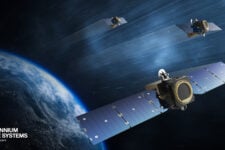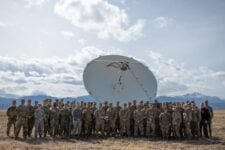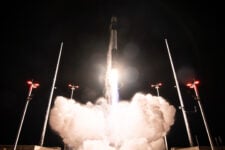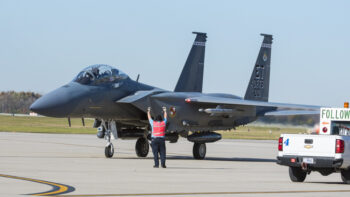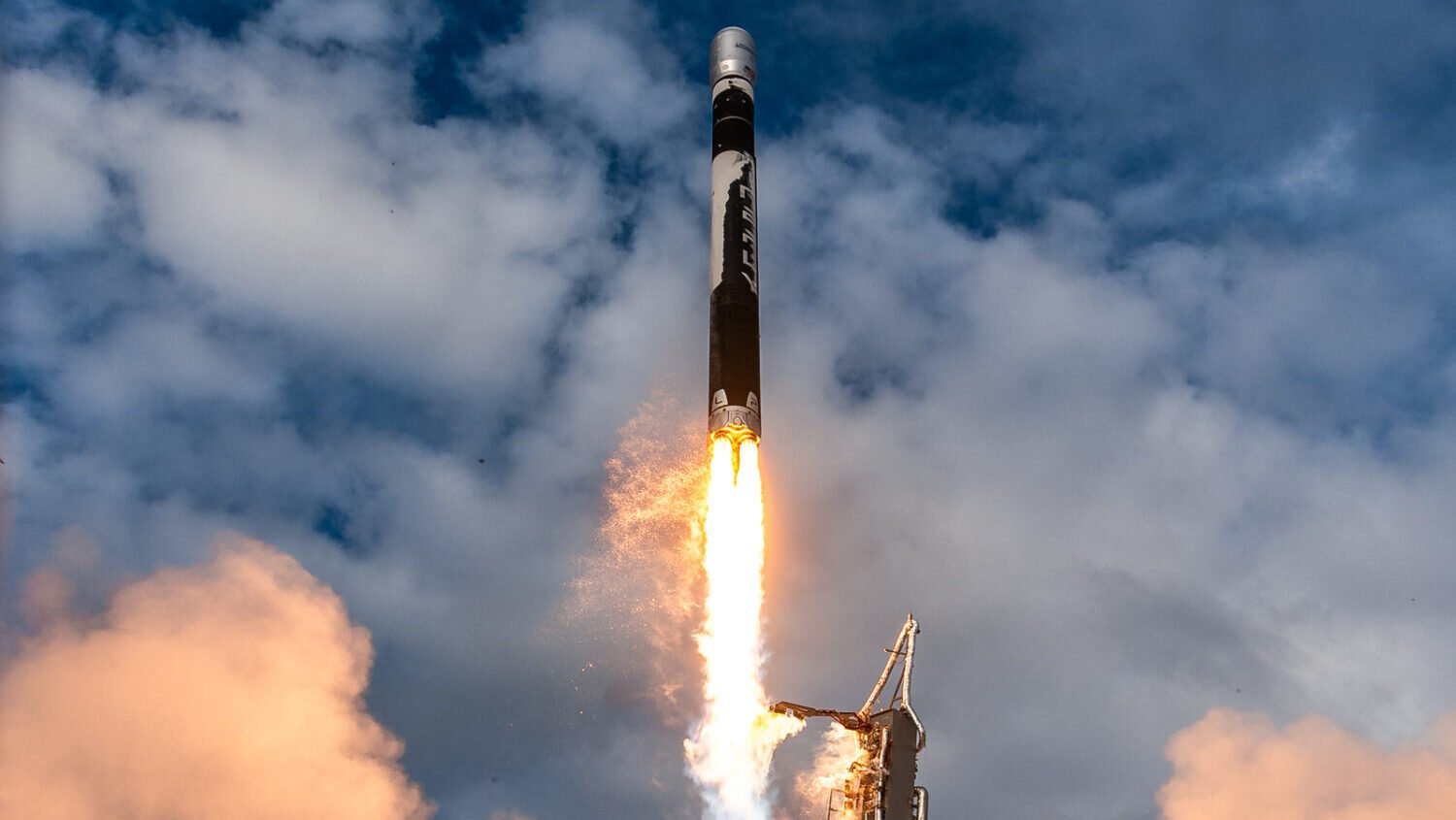
New contract qualifies Firefly’s Alpha rocket to launch satellites for the NRO from both Vandenberg and Cape Canaveral. (Firefly Aerospace)
WASHINGTON — Firefly Aerospace has been chosen by the National Reconnaissance Office (NRO) to join its small launch services pool — meaning it will be allowed to compete for spy agency launches worth up to $700 million over the next decade, the company announced.
The agreement, in essence, certifies Firefly’s Alpha rocket as a provider under NRO’s Streamlined Launch Indefinite Delivery/Indefinite Quantity Contract (SLIC) vehicle, which was created to provide the agency quick access to commercial launches for its smaller, less critical payloads. Alpha is an expendable launch vehicle that can lift 1,030 kg (2,270 pounds) to low Earth orbit (LEO) and 630 kg (1,390 pounds) to Sun-synchronous orbit, according to the company’s website.
“The SLIC contract started in 2021 and lasts for 10 years. The intent is to provide a multiple award IDIQ for procurement of launch services from a US launch service provider. On-boarding can occur at any time during the 10-year period following a successful launch, and it offers the on-boarded competitors the opportunity to compete for future SLIC missions,” an NRO spokesperson told Breaking Defense in an email.
The first company to receive a SLIC contract was Virgin Obit for its failed Jan. 9, 2023 mission from the UK’s new Cornwall facility for the US Defense Department and the UK Ministry of Defence carrying four small satellites. Virgin Orbit, owned by UK billionaire Richard Branson, declared bankruptcy in April 2023.
Texas-based Firefly had a major success in September with the Space Force’s Victus Nox mission to turn around a satellite launch within a 24-hour window. Victus Nox was the company’s third launch attempt with Alpha. Its first attempt in September 2021 failed, and a second in October 2022 was partially successful. Its latest launch, on Dec. 22, suffered an upper stage misfire and thus put its payload, developed by Lockheed Martin, into the wrong orbit.
“Firefly is ready to support the NRO’s responsive space needs as we continue to advance our rapid launch operations capability,” CEO Bill Weber said in the company’s announcement. “In order to support the increased demand for Alpha launches, we’ve doubled the size of our facilities, implemented automated carbon composite technologies, and fine-tuned our operations to rapidly produce, test, and launch in response to our customers’ urgent mission needs.”
Alpha’s next launch for NASA “is on track for early 2024,” the release said.
The release also noted that Firefly will “support a responsive on-orbit mission for the NRO onboard Firefly’s Elytra” orbital spacecraft this year. According to the company’s website, Elytra — which also will launch on Alpha — will carry Dallas-startup Xtenti’s FANTM-RiDE payload dispenser into Sun-synchronous orbit, “utilize the FANTM-RiDE dispenser” to first deploy commercial rideshare “and then perform an on-orbit maneuver and stand ready to deploy U.S. government payloads on-demand.”
The company sells three Elytra variants, each optimized for different orbits (from LEO to cislunar space) and different missions from “on-orbit transfers, hosting, delivery, and servicing,” the website says.
L3Harris selloffs hampered by low bids, CEO says
“To the extent we can get a good price for what we’ve identified as non-core [businesses], we’ll do it. But too many of the offers are coming in low and people think we’re desperate to sell, and I can assure you we’re not,” said L3Harris CEO Chris Kubasik.

